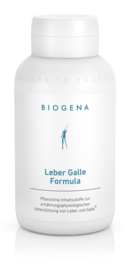The milk thistle (Silybum marianum) is one of the most well-known medicinal plants that plays a significant role in natural medicine. It is often recommended, especially for liver and digestive problems. But what effects does milk thistle actually have and are there also side effects? In this article, we examine the different aspects of this fascinating plant.
Definition of milk thistle: Medicinal plant with effective properties
The milk thistle belongs to the daisy family and is mainly located in the Mediterranean. Its characteristic purple-coloured flowers and white-veined leaves make it easily recognisable. In medicine, mainly the active substance complex silymarin derived from the fruits and seeds of the plant is used. This has antioxidant, anti-inflammatory and cell-protecting properties, which are particularly valued in the treatment of liver diseases.
Effect of milk thistle
Milk thistle is known for its varied effects on the human body. Its main active ingredient, silymarin, has an antioxidant, anti-inflammatory and immunomodulatory effect. But the medicinal plant has much more to offer. In the following, we consider the specific effects on various organs and clinical pictures.
Effect of milk thistle on the liver
The liver is the central organ of the metabolism and of detoxification. The active substance silymarin, which is contained in milk thistle, has proven to be particularly helpful in studies of inflammation and liver diseases due to its anti-inflammatory effect. Silymarin has been shown to protect the liver, support the immune system and to improve general symptoms and liver function values. Silymarin also promotes protein production, which supports the regeneration of the liver cells.
Effect of milk thistle on the gallbladder
The milk thistle has a positive effect on the gallbladder. It promotes the formation and drainage of bile, which supports fat digestion and can prevent the formation of gallstones. The milk thistle can offer natural support, especially in people with chronic biliary complaints.
Effect of milk thistle on the stomach and intestines
The milk thistle is also effective in the digestive tract. It can relieve gastrointestinal symptoms by regulating the production of gastric juices and soothing the inflammatory processes in the intestine. Silymarin also promotes the regeneration of mucous membranes.
Pharmaceutical forms of milk thistle: Tea, capsules, etc.
The milk thistle is available in various pharmaceutical forms, depending on individual needs and preference. As tea, it is often used to aid the digestion. Capsules and tablets are an easy way to consume the plant’s concentrated active ingredients, especially to support the liver. Tinctures and powders are also common forms that can be used depending on the application preference.
However, since Silymarin is poorly water-soluble, teas and tinctures are not as effective as high-dose capsules. Capsules can be used to make effective use of the properties of the plant.
Side effects of milk thistle
Persons with an allergy to composite plants should be careful when taking it, as there is an increased risk of allergic reactions. There is insufficient scientific data on the use of milk thistle during pregnancy and on the use in children and it is therefore not recommended.
Frequently asked questions about milk thistle
Milk thistle can be taken at different times of the day, depending on the individual health goals and the preferred pharmaceutical form.
If milk thistle is taken to aid digestion, it is advisable to take it about 30 minutes before main meals. This helps stimulate the production and flow of bile and aids fat digestion.
If milk thistle is taken to support liver function or to detox the body, regular intake throughout the day is ideal. Many people prefer to take it in the morning and evening to ensure an even supply of the active substance silymarin.
In some people, taking milk thistle before going to bed can be helpful, especially if it is intended to contribute to the nightly detoxification of the liver. This can be especially beneficial in the event of evening exposure to alcohol or fatty foods.
In the case of a sensitive stomach, it may be helpful to take milk thistle capsules during or directly after a meal to avoid possible stomach problems.
Yes, milk thistle can be used to support the treatment of fatty liver (steatosis hepatis). The main active ingredient in milk thistle, silymarin, has liver-protecting, antioxidant and anti-inflammatory properties, which can be particularly useful in liver diseases such as fatty liver.
Several studies have shown that the regular intake of milk thistle preparations can improve liver function in people with fatty liver. Nevertheless, the treatment of fatty liver should always include a change in lifestyle, such as a healthy diet, weight loss and regular physical activity.
The milk thistle is a versatile medicinal plant that is suitable for a variety of health purposes. Here are some of the most important applications:
- Support of liver health: The milk thistle is particularly known for its positive effect on the liver. The active substance silymarin promotes the regeneration of liver cells, protects the liver from harmful influences and thus supports the detoxification of the body.
- Promotion of bile function: Milk thistle can improve the production and flow of bile, which aids fat digestion and can prevent the formation of gallstones.
- Alleviation of digestive problems: Through its effect on the liver and bile, the milk thistle can also be supportive in the case of general digestive complaints such as flatulence, bloating and nausea.
Although milk thistle is a valuable medicinal plant, there are certain situations and conditions under which you should avoid taking it or at least exercise caution.
- Allergy to composite plants: People allergic to composite plants such as arnica, chamomile or dandelion should avoid milk thistle, as it belongs to this plant family and could cause an allergic reaction.
- Pregnancy and breastfeeding: There is insufficient scientific data on the safety of taking milk thistle during pregnancy and breastfeeding. Therefore, it is recommended to only consider taking it in these phases after consultation with a doctor.
- Children: The use of milk thistle in children has not been adequately studied and is therefore not recommended.
Further reading:
Camini, F.C. et Costa, D.C. 2020. Silymarin: not just another antioxidant, in: J Basic Clin Physiol Pharmacol. Mar 5; 31(4).
Deak, G. et al. 1990. Immunomodulator effect of silymarin therapy in chronic alcoholic liver diseases. Orv Hetil. 131(24):1291-2.
Deep G, Agarwal R. 2010. Antimetastatic efficacy of silibinin: molecular mechanisms and therapeutic potential against cancer. Cancer Metastasis Rev.;29(3):447‐463.
Gargari, B. et al. (2015). Effects of Silybum marianum (L.) Gaertn.(silymarin) extract supplementation on antioxidant status and hs-CRP in patients with type 2 diabetes mellitus: a randomized, triple-blind, placebo-controlled clinical trial. Phytomedicine, 22(2), 290-296.
Gu, J., et al. (2015). An open-label, randomized and multi-center clinical trial to evaluate the efficacy of Silibinin in preventing drug-induced liver injury. International journal of clinical and experimental medicine, 8(3), 4320.
Kim, M.S. et al. 2016. Optimal management for alcoholic liver disease: Conventional medications, natural therapy or combination? in: World J Gastroenterol.;22(1):8-23.
Li Volti, et al. 2011. Effect of silibinin on endothelial dysfunction and ADMA levels in obese diabetic mice. Cardiovascular diabetology, 10, 1-8.
Malewicz, B., et al. 2006. Enhancement of mammary carcinogenesis in two rodent models by silymarin dietary supplements. Carcinogenesis, 27(9), 1739-1747.
Raina, K., Kumar, S., Dhar, D., & Agarwal, R. 2016. Silibinin and colorectal cancer chemoprevention: a comprehensive review on mechanisms and efficacy. Journal of biomedical research, 30(6), 452.
Vargas-Mendoza N. et al. 2020. Flavolignans from Silymarin as Nrf2 Bioactivators and Their Therapeutic Applications, in: Biomedicines; 8(5), S.122.










